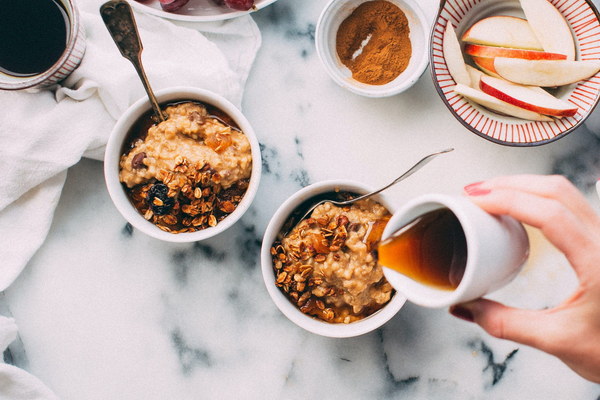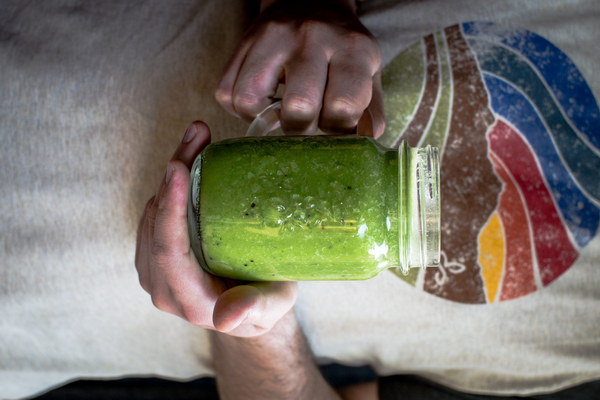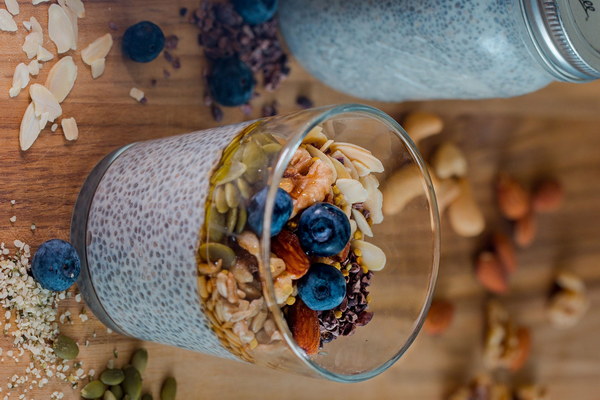Nurturing Your Body Postpartum A Comprehensive Guide to Recovery and Well-being
After the joyous experience of giving birth, it's crucial for new mothers to focus on their physical and emotional recovery. The postpartum period, typically spanning the first six weeks after childbirth, is a critical time for healing and rejuvenation. This article aims to provide a comprehensive guide on how to nurture your body during the postpartum period, ensuring a smooth and healthy recovery.
1. Prioritize Rest and Sleep
One of the most important aspects of postpartum recovery is ensuring you get enough rest and sleep. Your body has undergone significant changes during pregnancy and childbirth, and adequate rest is essential for healing. Try to sleep when your baby sleeps, and don't hesitate to ask for help from your partner, family, or friends.
2. Eat a Balanced Diet
A nutritious diet can aid in your recovery and provide the energy you need to care for your newborn. Focus on a balanced diet rich in fruits, vegetables, whole grains, lean proteins, and healthy fats. Include foods high in iron and calcium to combat potential deficiencies. Additionally, drink plenty of fluids to stay hydrated and support milk production if you are breastfeeding.
3. Gentle Exercise
Light exercise can help improve circulation, enhance mood, and promote healing. Consult with your healthcare provider before starting any exercise routine. Some beneficial postpartum exercises include walking, gentle stretching, and Kegel exercises to strengthen your pelvic floor muscles. Start with short, manageable sessions and gradually increase the intensity as you feel comfortable.
4. Care for Your Pelvic Floor
The pelvic floor muscles support the bladder, bowel, and uterus. During pregnancy and childbirth, these muscles can become weakened or damaged. Kegel exercises can help strengthen the pelvic floor and reduce the risk of urinary incontinence or pelvic organ prolapse. Perform these exercises regularly, focusing on slow and controlled contractions.
5. Manage Postpartum Pain
Pain is a common concern during the postpartum period. Your healthcare provider can recommend appropriate pain management techniques, such as pain medication, ice packs, or heating pads. It's important to communicate your pain levels to your provider and seek help if the pain becomes overwhelming.
6. Breastfeeding Support

Breastfeeding is a rewarding experience for many new mothers, but it can also be challenging. Seek support from lactation consultants or breastfeeding groups to learn proper techniques and overcome any difficulties. Ensure you are well-hydrated, eat a balanced diet, and rest frequently to maintain milk production.
7. Mental Health Awareness
The postpartum period can be an emotional rollercoaster. It's not uncommon to experience mood swings, anxiety, or depression. Reach out to your healthcare provider if you're struggling with your mental health. Support groups, counseling, and therapy can provide valuable resources and coping strategies.
8. Practice Self-Care
Taking care of yourself is crucial during the postpartum period. Engage in activities that bring you joy and relaxation, such as reading, taking a warm bath, or spending time with friends and family. Don't hesitate to delegate tasks and ask for help to ensure you have time for yourself.
9. Follow Up with Your Healthcare Provider
Regular check-ups with your healthcare provider are essential to monitor your recovery progress. Discuss any concerns you may have and ensure you are on track for a healthy postpartum period.
In conclusion, nurturing your body during the postpartum period is vital for a smooth and healthy recovery. Prioritize rest, eat a balanced diet, engage in gentle exercise, and seek support when needed. By taking care of yourself, you'll be better equipped to care for your newborn and embrace the joys of motherhood.









